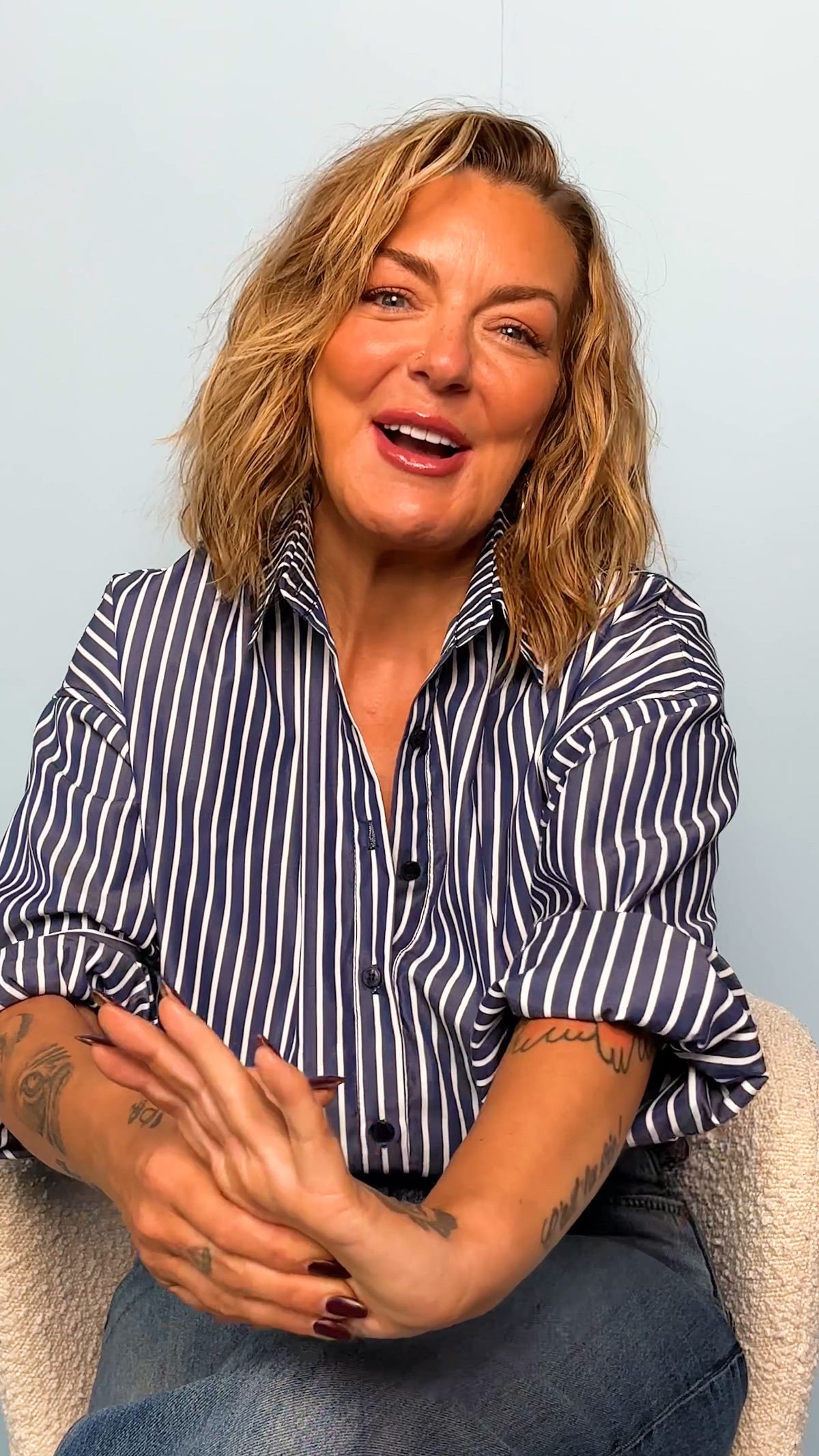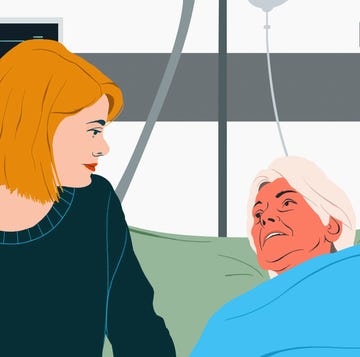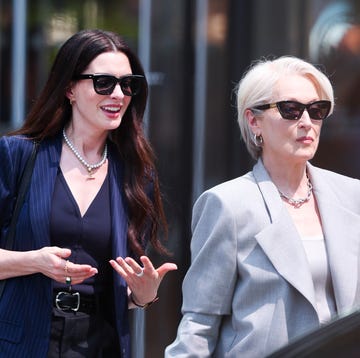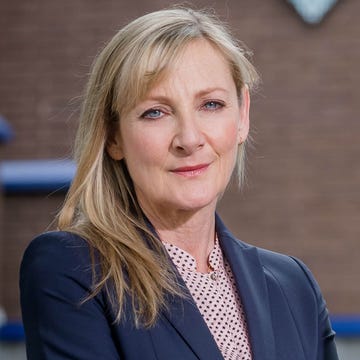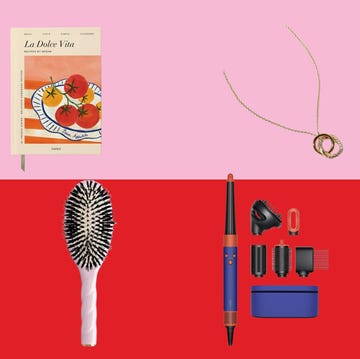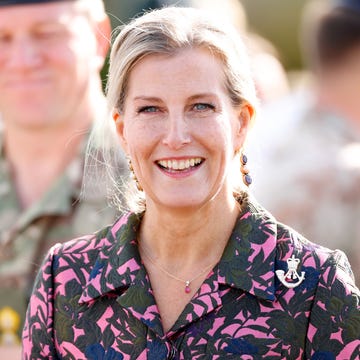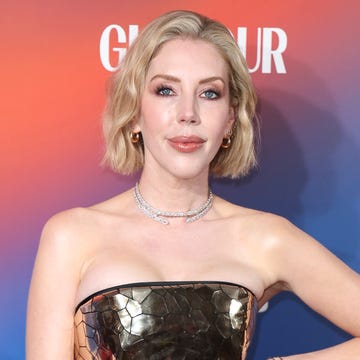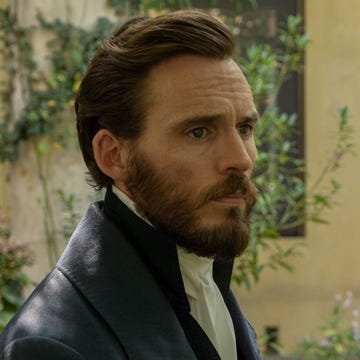In January, actor, writer and producer Issa Rae commented “congratulations to those men” after announcing the 2020 Oscars best director nominees, referencing the frustrating absence of women. It was the same story at the Golden Globes, with the best director and screenplay categories dominated completely by men, and the BAFTAs, which featured exclusively male nominees in the best director shortlist.
At the centre of this year’s conversation about the lack of recognition for women-led films is Greta Gerwig, director of the newly-released Little Women starring the likes of Saoirse Ronan, Laura Dern and Meryl Streep. Despite the adaptation having impressive credentials and receiving widespread praise from viewers, Gerwig has been notably absent from the best director categories at major film awards - although the film has been nominated in the best picture category at this year's Oscars.
Of course, women being excluded in this way isn’t a new issue. Throughout the 92-year history of the Oscars, there’s been a strong gender imbalance present. The starkest example is in the cinematography category which was the last un-gendered award to nominate a woman (Mudbound's Rachel Morrison), just two years ago and hasn't nominated another woman since. There have been 449 nominations for best director, with just five of these going to women. Of those five, only Kathryn Bigelow went on to win. She took home the directing Oscar for The Hurt Locker, a war drama starring Jeremy Renner, in 2010.
Dr Claire Jenkins, Lecturer in Film and Television Studies at the University of Leicester recognises Kathryn has received such critical acclaim in part because she generally makes films about men and masculinity.
“That’s not to say there aren’t feminist moments or that they can't be from a feminist perspective, but she definitely is making films about the male experience that tend to do well at awards. The difficulty is, most women directors aren't offered those films. At the same time as you only get rewarded if that's what you're making, you struggle to make it in the first place. You’re being clobbered from two angles,” she explained.
Dr Jenkins makes the point that throughout the history of cinema, women have often been depicted within the setting of family and the home - a trend that persists to this day.
“If you go back to classical Hollywood, women appeared in melodramas [made to appeal to the heightened emotions of audiences]. It wasn't that we never saw women, that we didn't ever see strong female characters, but they were often very domestic-focused," she said.
“If you think about Laura Dern winning a BAFTA for Marriage Story, although she is playing a lawyer and it’s an interesting role, it’s a film about domestic breakdown."
Films about princesses aren't often celebrated by major film awards, but in popular cinema they're a staple of women's stories.
“It [still] tends to be that you either are a mother, a girlfriend or want to be a princess. There’s not an awful lot of diversity in the stories about women and because of that, there's not a lot of diversity in the types of women on screen. And therefore, there's just not as much interest - I don't think - in stories about female friendship as there is for camaraderie and male friendship in [films like] 1917,” Dr Jenkins added.
“I think there is a widespread belief that stories about women are less important than stories about men. This is because most stories over history have been centred around white men, so that's basically all we know,” Melissa Silverstein, founder of Women And Hollywood, an initiative for gender diversity and inclusion within the global film industry said.
Rhianna Dhillon, a film critic for BBC radio who works with the British Film Institute and BAFTA, agrees.
“It’s that self-fulfilling prophecy where the world has always rewarded men over women in every aspect of life. So of course, that was going to spill into the arts and the film industry," she said.
"Men are being given the biggest, best jobs in terms of directing or roles. If you look at the statistics of male versus female speaking roles, the percentages of that are truly appalling."(Of the top 100 grossing films in 2019, women comprised just 34% of all speaking characters.)
While women are still being discriminated against, there's a privilege that comes with being white and it’s even harder for non-white women to get the roles and recognition they deserve. Only nine black women have an Academy Award for acting in the leading and supporting categories combined, and Halle Berry is the sole black woman to ever have won best actress.
This awards season, Lupita Nyong’o, Awkwafina and Jennifer Lopez have been left out of various nominees lists, despite impressive performances in Us, The Farewell and Hustlers. Cynthia Erivo is the only actress of colour nominated for an acting award at this year's Oscars and the leading and supporting actress categories at the recent BAFTAs were made up exclusively of white women, with Scarlett Johansson and Margot Robbie each nominated twice.
Erivo is Oscar-nominated for her portrayal of Harriet Tubman in Harriet, which critic Rhianna feels is “an incredible” film.
“I think British audiences perhaps don't know the story of Harriet Tubman as much as American audiences and that's possibly why that film cut through in America more than it did here,” she said.
“But also, people are starting to say that there is a tendency to reward films where black people are slaves or seen as subservient, having to overcome that instead of, for example, Lupita Nyong’o’s role [in Us], which is a very modern, exciting horror. [The role] has got to do with her race but not in that same way as [her] having to overcome being a slave, which is what she won the Oscar for - 12 Years a Slave.”
The Hollywood Reporter reports the Oscars brought in 2,000 new voters after the #Oscarssowhite social media campaign led by disappointed viewers. BAFTA has also tried to diversify its voting pool, however from this year’s overwhelmingly white, male list of nominees it's clear there's some way to go. After the nominations were announced, Amanda Berry, CEO of BAFTA, said:
“The lack of diversity in today’s nominations is hugely disappointing. Our year-round activity has many strands that focus on diversity but it is clear there is much more to be done. We will continue to focus our efforts to affect real change and support, and encourage, the film industry.”
Marc Samuelson, Head of BAFTA’s film committee said there will be a “careful and detailed review within and outside the membership” in regards to voting procedures for next year’s awards.”
Rhianna says a more nuanced voting system is the way to go, as favoured by the British Independent Film Awards, but wonders if BAFTA will take on the challenge.
“What’s really interesting is that the category that was the most diverse [this year] at the BAFTAs was the rising star award, and that is one that's voted for by a jury. These are people that have to have a conversation about it, which means that they're going to be much more aware, instead of ticking a box. They're actually thinking around all of the reasons why these people should be nominated and celebrated,” she said.
“I think that is something that they should really consider doing for the other categories, especially in acting and directing. The trouble is, it's a lot more work. It's a lot more people in a room together.”
Oscars by numbers
The average age of this year's best actor nominees is 51, 14 years older than the best actress average age of 37.
While Kathryn Bigelow is the only woman to have won best director, Ang Lee, Alfonso Cuarón and Alejandro G. Iñárritu have each won the award twice since 2000.
The most awarded Oscar winner ever is Walt Disney, who won 26 awards out of 59 nominations.
Melissa from Women And Hollywood believes an important step in making the industry more diverse and representative is a shake-up of the people controlling it from the top.
“We need more non-white men in leadership with authority to hire people. It's all about hiring and people feeling confident and empowered to do it,” she said.
“Because we’ve had hashtags, does that mean things are going to change overnight? No, of course, not. It’s not just going to take a movement on Twitter to change very deep-rooted ideals and the way people act," Rhianna said.
“I think it’s going to take a long time. I would love to be proved wrong but I am quite pessimistic,” Dr Jenkins said.
“We’ve got to the point in the year where everyone’s talking about awards and they’re a marker of how women are treated - and to some extent that's true in the industry - but it happens once a year. Actually, there's nothing significantly changing, and it needs an entire overhaul of the system… before we can see women in the mainstream.”
Like this article? Sign up to our newsletter to get more articles like this delivered straight to your inbox.







